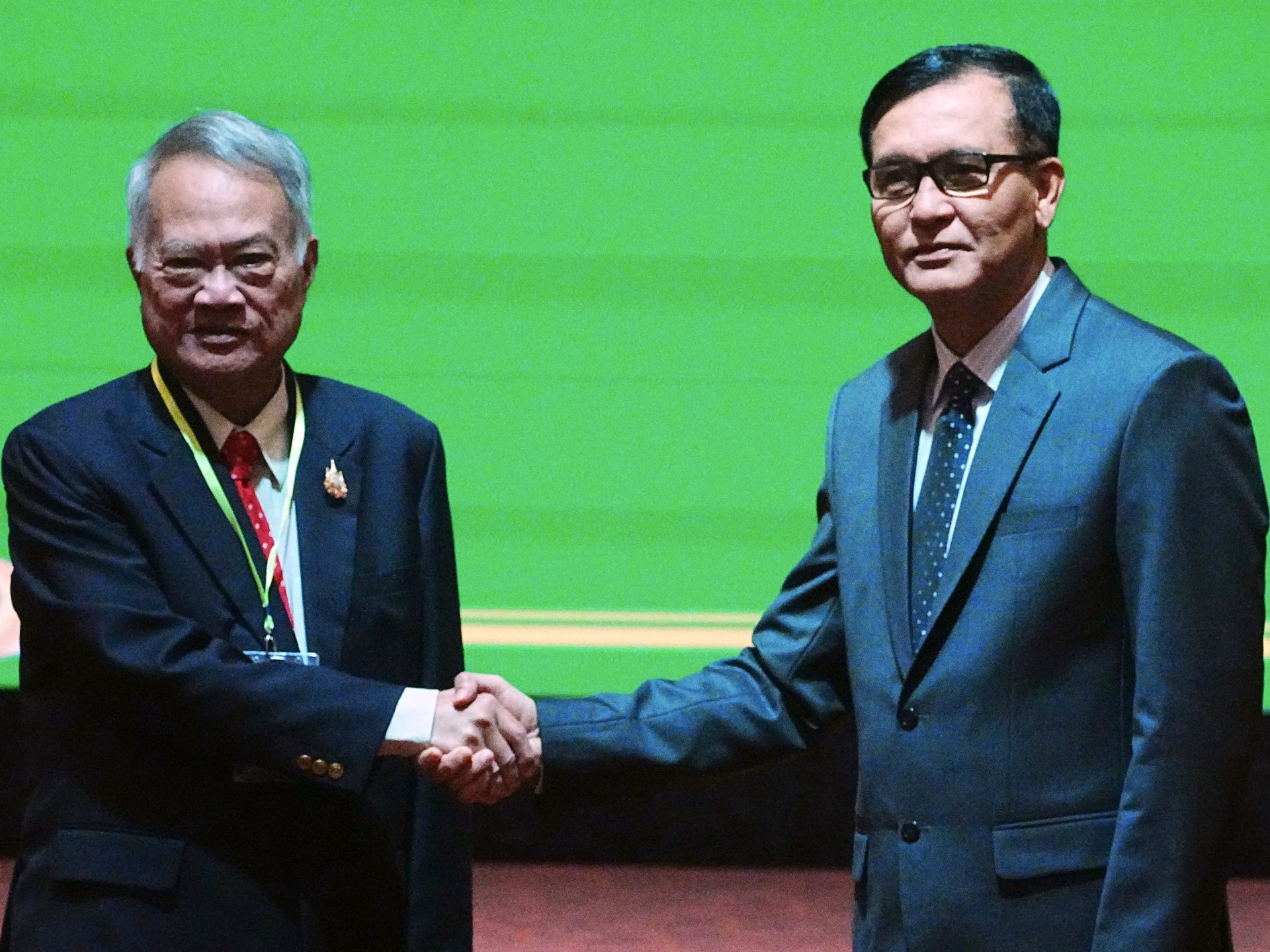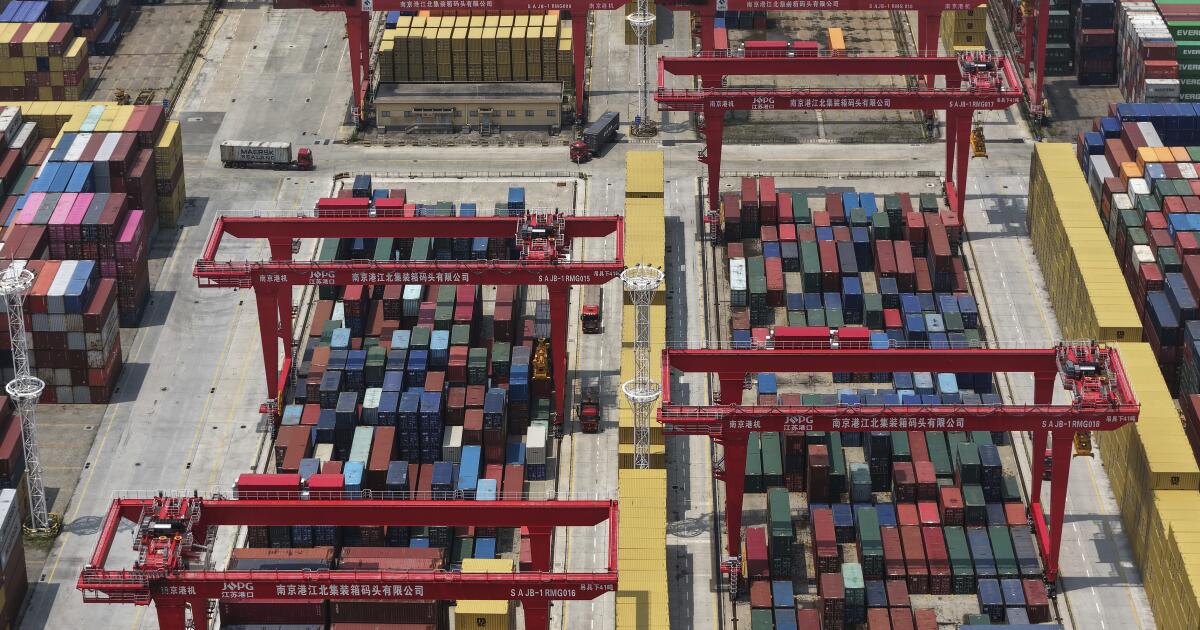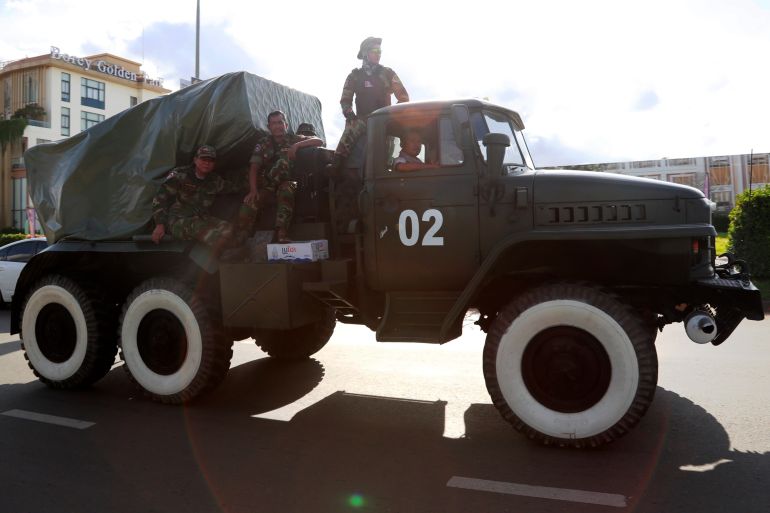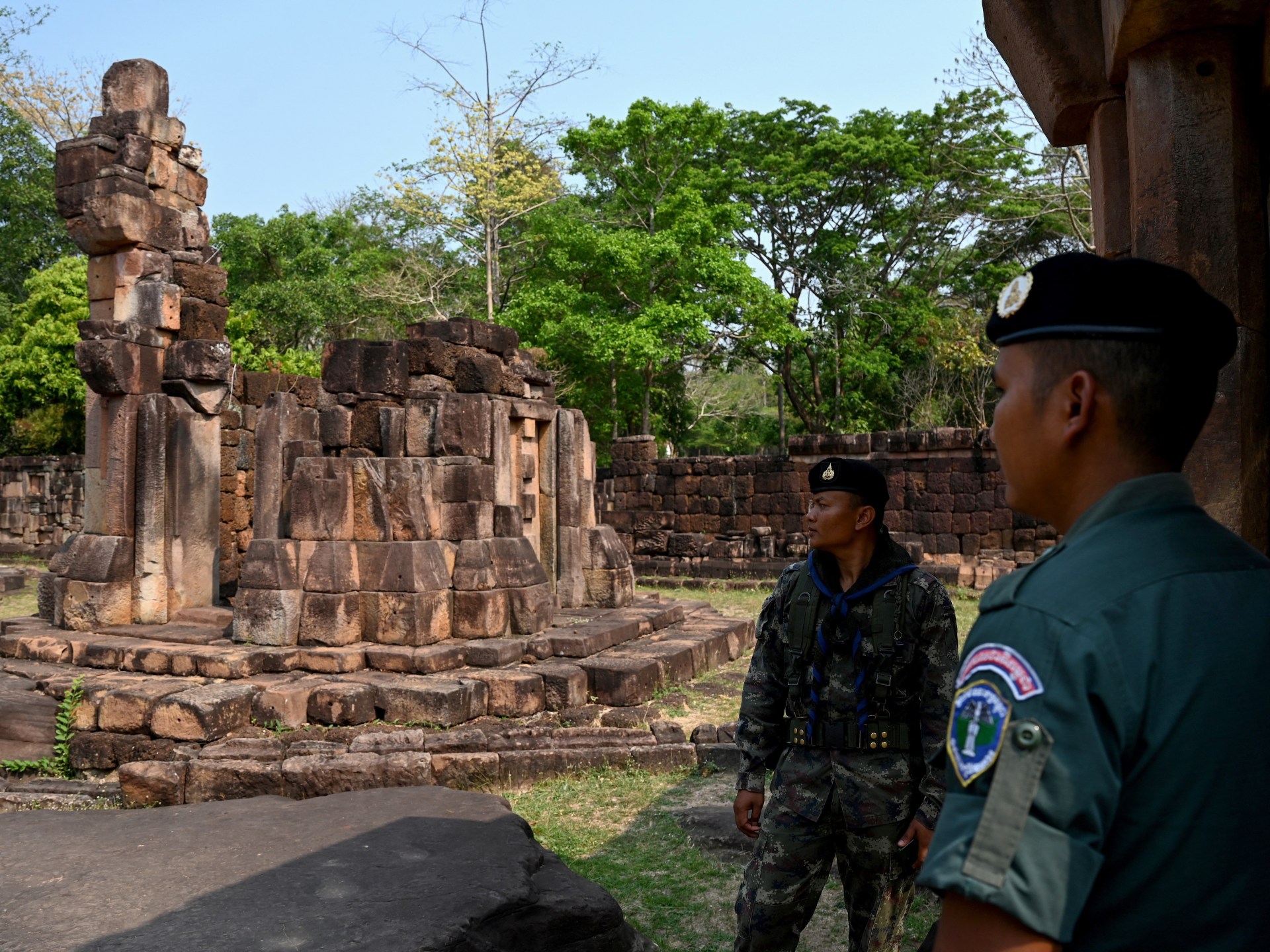Thailand says ‘progress made’ in border dispute talks with Cambodia | Border Disputes News
The talks come after troops from the two countries exchanged fire last month, killing one Cambodian soldier.
Thailand says talks with neighbouring Cambodia had “made progress” in resolving a long-running border dispute that last month devolved into clashes, leading both countries to mobilise troops on the border.
A Thai delegation led by foreign ministry adviser Prasas Prasasvinitchai and a Cambodian contingent headed by Lam Chea, minister of state in charge of the Secretariat of Border Affairs, met on Saturday in the Cambodian capital Phnom Penh to try to resolve the spat.
The meeting came after troops from the two countries exchanged fire last month in an area known as the Emerald Triangle, where the borders of Cambodia, Thailand and Laos meet, with one Cambodian soldier killed.
Thailand’s foreign ministry said the Joint Boundary Commission meeting had “made progress in building mutual understanding” between the two countries.
Ministry spokesman Nikorndej Balankura said in a news conference that “diplomatic dialogue remains the most effective way forward”, adding that talks would go into Sunday.
A resolution is not expected this weekend and it was unclear when the outcome would be announced.
The Thai and Cambodian armies both said they had acted in self-defence during the exchange of fire on May 28, but agreed to reposition their soldiers to avoid future confrontations.
In recent days, Thailand has tightened border controls with Cambodia, which in turn has asked its troops to stay on “full alert”.
Despite both countries pledging dialogue to handle the issue and calm nationalist fervour, Bangkok has threatened to close the border and cut off electricity supplies to its neighbour.
Phnom Penh announced it would cease buying Thai electric power, internet bandwidth and produce. It has also ordered local television stations not to screen Thai films.
Filing complaint with ICJ
The dispute between Thailand and Cambodia dates to the drawing of the 820-km (510-mile) frontier, largely done during the French occupation of Indo-China from 1887 to 1954. Parts of the land border are undemarcated and include ancient temples that both sides have contested for decades.
The region has seen sporadic violence since 2008, resulting in at least 28 deaths.
Cambodian Prime Minister Hun Manet announced earlier this month that Cambodia would file a complaint with the International Court of Justice (ICJ) over four disputed border areas, including the site of the latest clash. Thailand, however, has insisted on a bilateral solution.
Hun Manet said in a Facebook post on Friday that the four areas and the border restrictions would not be discussed at Saturday’s talks, adding the government would send an official letter to the ICJ on Sunday on its plan to file the case.
“Cambodia awaits Thailand to clarify its official position at [Saturday’s] meeting on whether Thailand will join Cambodia in referring the four areas to the ICJ,” he said.
Influential former strongman premier Hun Sen, Hun Manet’s father, has criticised Thailand’s military for restricting border crossings and has accused generals and Thai nationalists of fanning the tensions.
“Only extremist groups and some military factions are behind these issues with Cambodia because, as usual, the Thai government is unable to control its military the way our country can,” he said late on Thursday.
The ICJ ruled in 2013 that a disputed area next to Preah Vihear temple belonged to Cambodia, but Thailand says it does not accept the ICJ’s jurisdiction.




